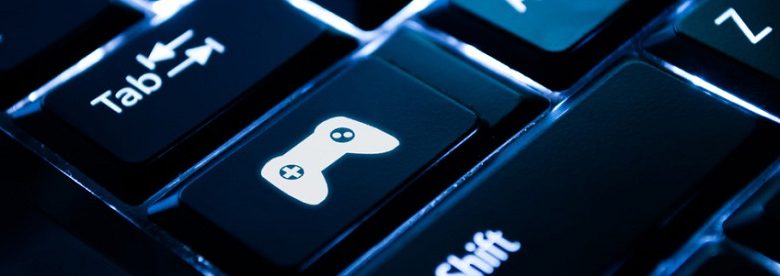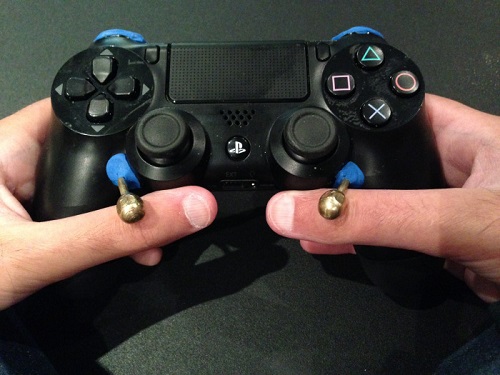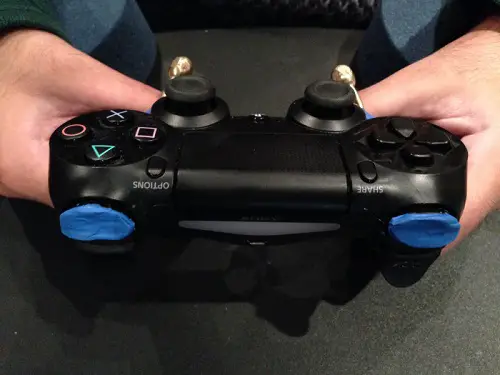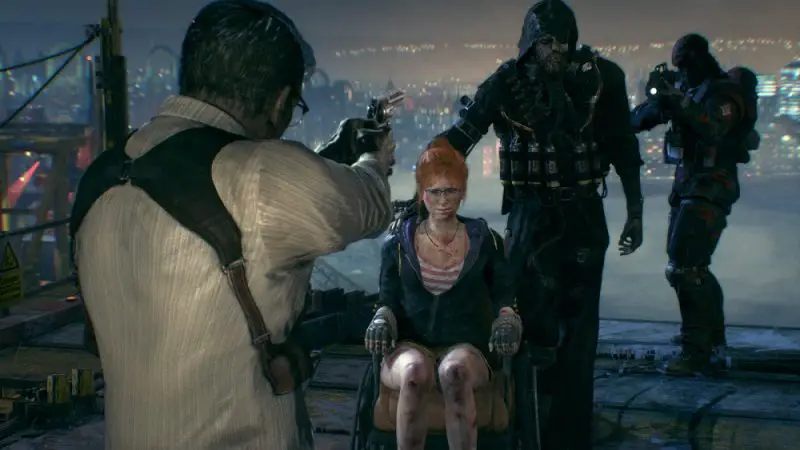
Disability and entertainment: the accessible world of gaming
Avid gamer Vivek, who has Duchenne Muscular Dystrophy, shares his thoughts on the accessibility of the gaming world, including what games companies need to do to make computer games more accessible, what positive things are already being done, and how you can adapt gaming to suit you.
Gaming is an important hobby and social activity for many disabled people. It enables us to forget about our disability for a short period, and provides an escape into a world where we can participate in physical activities that would otherwise be impossible.
And I’m not just talking about the big actions like shooting aliens, driving a supercar or having superpowers. But also the small things, such as simply walking around, picking up an item or exploring disabled-unfriendly environments, including the jungle (Uncharted 4) or other planets (Mass Effect Series, Halo).
The gaming industry is an untapped resource for disabled people with the potential for realistic representations of disability and accessibility to the game itself. With regards to disability there are 3 core areas to focus on within the game industry:
- the physical accessibility of hardware or controllers;
- allowing disabled players to alternate configurations or to have button customisation;
- storytelling opportunities for disabled protagonists, with non-stereotypical portrayals of a character with a disability.
Gaming accessibility
There are unfortunately a number of gaming companies, including Sony, Microsoft and Nintendo, that need to better consider accessibility during the design process of controllers, which would greatly benefit all gamers and avoid disabled gamers being unfairly restricted.
I’ve owned a variety of game boys: an Xbox, PS2, Xbox360, PS3, PS4. Over the years my Duchenne has slowly affected my gaming enjoyment. It’s meant I’ve been unable to quickly press R3 or L3 buttons on my PS3 controller without holding it in a uncomfortable, twisted position.
I’ve also had issues with my PS4: the gap between the R1 and R2/L1 and L2 is too big to slide my finger quickly between them and the convex shape of the R1 and L1. I thought I’d wasted my money, so I knew I needed to do something to adjust it. But it seemed liked a colossal task to face.
I searched the internet and found this article about adapting a PS4 controller and the charity ReMap, which adapts equipment for a number of different disabilities. After filling in a form online, a ReMap engineer visited my home. He listened to all my issues and then took the PS4 controller away for a week.
The pictures below illustrate the wonderful adaptations he made. The analog sticks are used as normal, but I can use the gold sticks for the R3 or L3 buttons and the R1 and L1 are modelled concave using SuGru, a moldable clay that can by stuck permanently.
ReMap has since adapted my friend David’s controller by moving the R1 and R2 underneath, so I’ve stolen the idea and asked ReMap to do the same for me. I’ve also shared this with my friends at Muscular Dystrophy UK.
There are also companies happily considering disability from the outset. The recent release of games like Uncharted 4 and Overwatch are great examples of how game developers are now starting to embrace accessibility options. Overwatch, a fighting game, has endless control configurations allowing someone who can only use one action per hand at a time to now play a game with mechanics that require multiple button inputs.
Uncharted 4 by Naughty Dog studios is a masterpiece in how to perfectly end a series by inserting an incredible story with likable characters, beautiful life-like graphics, perfectly placed slow sections of environmental exploration to contrast with gripping combat. The most incredible aspect is how Naughty Dog has made accessibility a priority by consulting with Josh Straub, a gamer with a disability. The in-game accessibility options are:
- 5 different alternate button configurations;
- a toggle for aiming down sights;
- make quick-time-event functions executable by holding ▲ instead of repeated taps;
- snap to aim function locks onto foes without having to manually aim.
Disabled characters
Uncharted 4 represents a standard of accessibility that should be more wide spread within the gaming industry. The way disability is represented in both the storyline and characters in games is important. However, it needs to be portrayed realistically, without falling back on usual negative stereotypes associated with disabled people.
All too often people see a person with disabilities as someone innocent and in need of help or protection. These opinions do not foster heroes; they foster a mentality that keeps disabled characters as sidekicks to be protected by the hero. Disabled characters can take care of themselves and should never be defined by disability.
The game Batman: Arkham Knight still relies on negative stereotypes within the story. It restricts the character Oracle painting a damsel in distress (see image below). It also includes unnecessary scenes, with the glorification of her paralysis and her supposed suicide, which gives Batman motivation to avenge.
Their have however been a few good examples of disability representation. For example, the character Lester Crest from Grand Theft Auto V, who has a disability, is the mastermind behind all the heists. Also, Joker Moreau, the pilot of the Normandy in the Mass Effect series, is the perfect example of how to design a disabled character. He suffers from Vrolik Syndrome but is only defined by his piloting skills, grace under pressure, wit and dedication.
Recently many indie game developers have experimented with disabled protagonists. Beyond Eyes focuses on a blind girl’s view of the world, Depression Quest allows you to play as a character going through depression and Perception enables you to play as a blind woman in a haunted house. Let’s hope that this is only the beginning.
By Vivek
You can read more of Vivek’s article on his blog Uncanny Vivek.
Resources and Communities for Accessible Gaming
For those interested in gaming accessibility, there are numerous organizations, charities, and communities dedicated to supporting disabled gamers. Here’s a comprehensive list:
AbleGamers – AbleGamers
-
- What They Do: AbleGamers focuses on combating social isolation through play, providing customised equipment, and fostering community inclusion for gamers with disabilities. They also run the Accessible Player Experiences (APX) program to educate game developers on accessibility.
- Notable Initiatives: They have partnered with Logitech G for adaptive esports tournaments and work with hospitals and rehabilitation centers to bring gaming to patients.
Everyone Can – Everyone Can
-
- What They Do: This UK-based charity helps people with disabilities improve their quality of life through gaming. They offer assessments, design adapted controllers, and have a dedicated gaming center in Manchester.
- Notable Initiatives: Their center provides a fully accessible environment for gaming, from retro arcade games to the latest VR experiences.
SpecialEffect – SpecialEffect
-
- What They Do: SpecialEffect is a UK charity that supports physically disabled gamers by providing custom accessibility controllers and promoting inclusivity in gaming.
- Notable Initiatives: They’ve been instrumental in creating bespoke solutions for gamers since 2007, before mass-produced accessibility controllers were common.
Accessibility Unlocked – Accessibility Unlocked
-
- What They Do: Focused on game development in Australia and New Zealand, this group connects disabled developers, provides resources, and acts as a support system for accessibility in the games industry.
Colorblind Games – Colorblind Games
-
- What They Do: A French start-up specializing in access to video games for players with disabilities and supporting publishers in making their games accessible.
DAGERSystem – DAGERSystem
-
- What They Do: A site dedicated to holistic games journalism through the lens of game accessibility, providing reviews and information for gamers with disabilities.
Family Gaming Database – Family Gaming Database
-
- What They Do: Helps parents and guardians navigate the world of games with key accessibility data, highlighting features that make games more inclusive.
Game Accessibility Conference (GAconf) – GAconf
-
- What They Do: A professional conference aimed at advancing accessibility in game development, offering a platform for sharing experiences and expertise.
IGDA Game Accessibility Special Interest Group (IGDA-GASIG) – IGDA-GASIG
-
- What They Do: Part of the International Game Developers Association, this group has been working since 2003 to make games accessible for all, regardless of impairments.
Meeple Like Us – Meeple Like Us
-
- What They Do: Focuses on the accessibility of board games, providing analysis and information for publishers and players.
MyVision.org – MyVision.org
-
- What They Do: Provides trusted information on eye health and vision, including an internet accessibility guide for the blind and visually impaired.
PlayAbility Consultancy – PlayAbility Consultancy
-
- What They Do: A group of gamers with diverse disabilities who playtest and provide feedback to game designers, developers, and publishers on accessibility.
Rolling with Two – Rolling with Two
-
- What They Do: Shares two-player experiences with tabletop games, including accessibility analysis.
These organizations and communities are pivotal in creating an inclusive gaming environment, offering support, resources, and advocacy for gamers with disabilities. They not only provide the necessary tools and information but also foster a sense of community and belonging, ensuring that gaming is accessible to everyone.
Originally posted on 11/07/2016 @ 12:30 am


